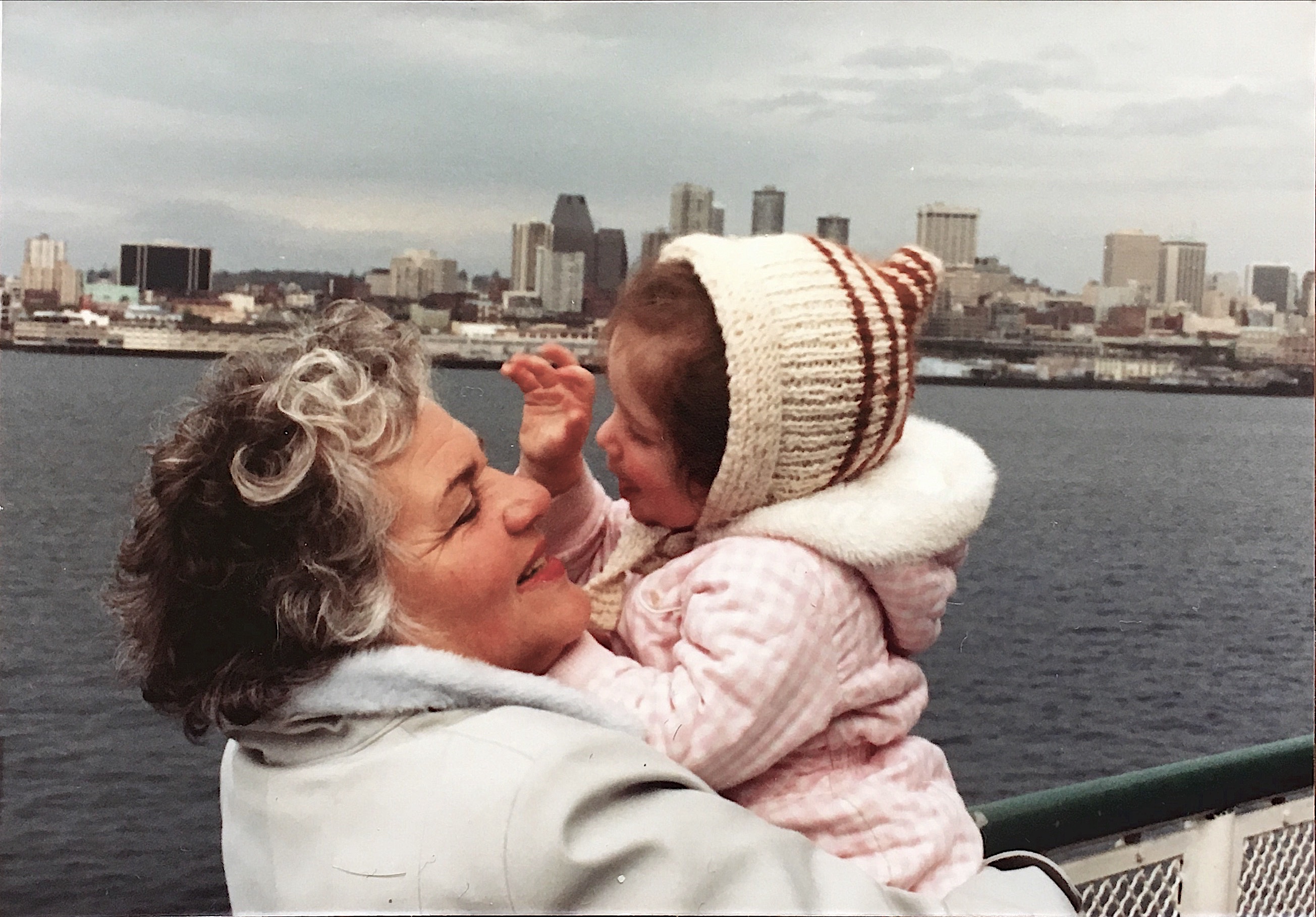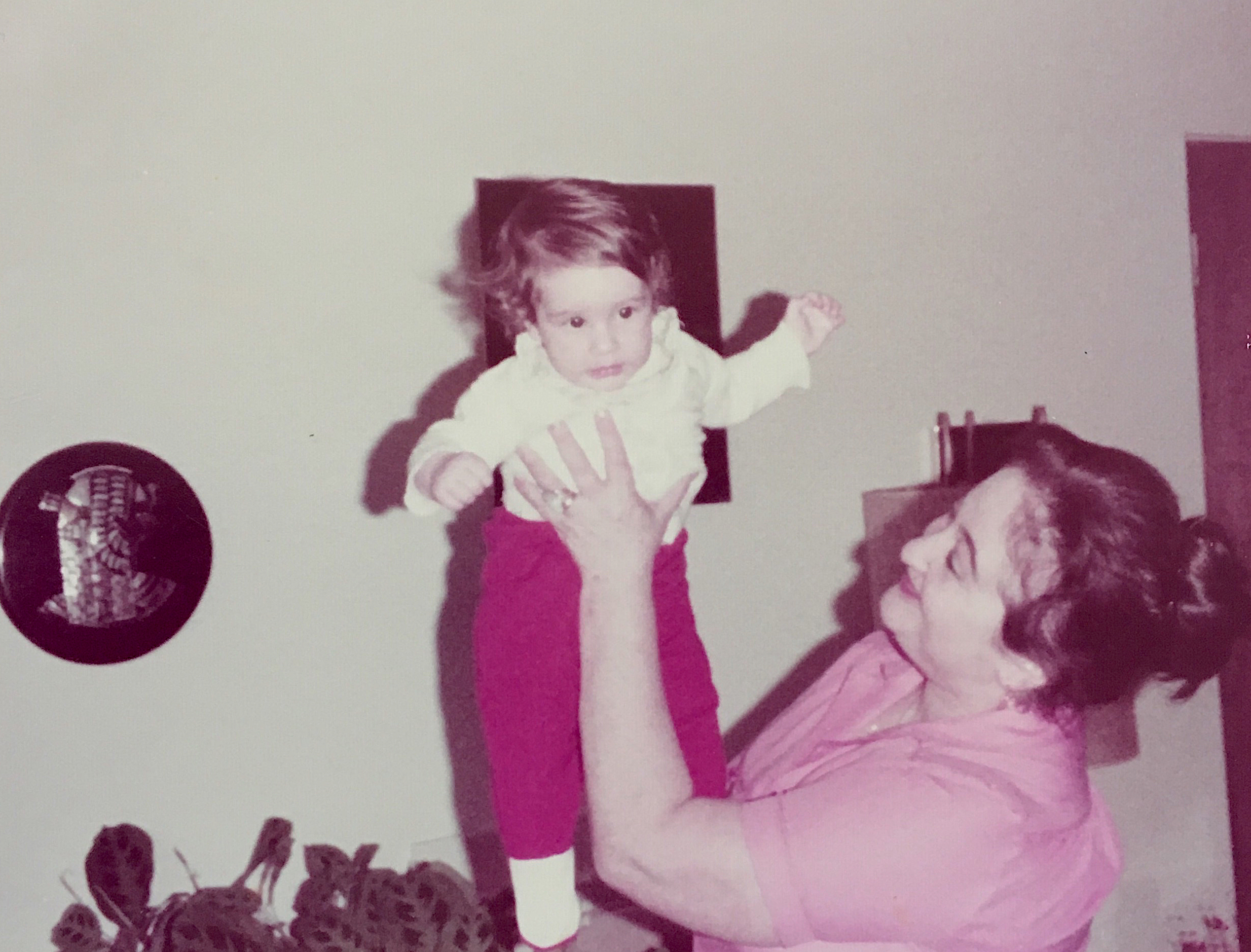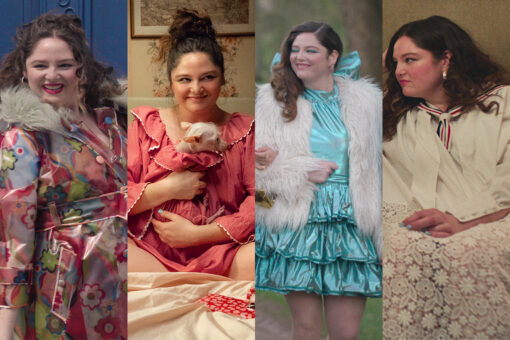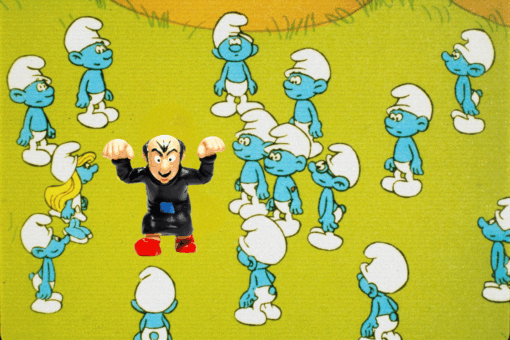From a young age, my grandmothers taught me by example that you could be the primary cook in your household, genuinely enjoy the act of cooking, have a job, and still be a strong badass woman.
My grandmothers were born and raised in the former Soviet Union, where life was generally inhospitable, especially so for Jews. In the late 1970s both sides of my family were able to leave Ukraine. My paternal grandparents (Fanya and Petya) immigrated to Israel, and my maternal grandparents (Mira and Isaak) came to live in the States. I am thankful to have been able to have close relationships with both of my grandmothers, and I’m even more grateful that I often got to sit at their tables.
We can’t ignore that cooking is a task that for many still represents patriarchal oppression, and for some women it can also be a non-negotiable domestic responsibility. It’s not lost on me that there are those who still believe that “a woman’s place is in the kitchen.” As a result, a love of being in the kitchen can feel problematic if you don’t agree with that statement.
If you hate cooking, I’m not trying to convince you to get in the kitchen. I am placing no value judgement on those who cook v. those who don’t. However, as someone who strongly believes that all folks should have equal value and rights in society, and as someone who loves to make food, I would like to share the lessons my grandmothers modeled for me.
1. Cooking can be ego driven, and that’s a good thing
My grandmothers loved positive feedback. They cooked with pride, and expected the quality of their work to be acknowledged. Their comfort with praise was in contrast to lessons I have learned throughout out my life as a woman. In various ways it’s implicitly or explicitly stated that it’s not “cute” for women to be proud, strong, and to want admiration for their accomplishments. This became most evident in professional settings, where I have been witness to women demurring from accolades, while male colleagues have appeared more comfortable in celebrating their strengths. When a woman is complimented, there is often an instinctive response to reject the compliment, depreciate it, or credit someone else in addition to themselves (check out this skit from Inside Amy Schumer for a dramatic version of this phenomenon).
My grandmothers owned their talent and took pleasure in being admired. I witnessed this with them both in and out of the kitchen. While I’m not completely immune to this symptom of patriarchy, their unabashed confidence continues to remind me to take pride in what I do without shame.
2. Love of cooking does not make you an anti-feminist
A few years ago, the actor Kaley Cuoco-Sweeting from the Big Bang Theory controversially gave an interview in Redbook where she claimed she wasn’t a feminist, in part because she liked to cook for her husband five nights a week. She later apologized for her comments. This is not the only instance where a love of cooking is equated as an anti-feminist position. Context is everything, and in certain times and places women’s rejection of cooking may be vital. Here and now, I feel differently.
My grandmothers were the primary cooks in their homes for two main reasons: They sincerely loved to cook, and they were incredibly good at it. If those things weren’t true, would they still be expected to cook? I can’t say for sure, but knowing them I truly don’t believe so. Both sets of grandparents split up domestic duties. Was it 100% equal? Probably not. Was the attitude that of equal distribution of labor in the home? Absolutely. That attitude existed in my parents’ home as well. Among other things, this showed me that it was OK to love a domestic task, but it didn’t mean that I had to then be responsible for all other domestic work. It also meant that love of cooking does not require abandoning a commitment to gender equality.
3. Cooking can empower
My grandmothers instilled the idea in me that in addition to an education, it’s important to have a skill that you can do with your hands. Having one less thing you have to rely on someone else for can be inherently empowering (I still wish I was taught car mechanics in high school). It also allows one to be useful to others, and to quote Eleanor Roosevelt: “Usefulness is its own reward… for it is the beginning of happiness.”
In the former Soviet Union, all adults were required to have a job. While patriarchy certainly existed, women were a meaningful part of the working world. Fanya worked her entire adult life, and when she finally arrived in Israel she had no desire to stop. Fanya developed a reputation in the neighborhood as an amazing cook, and she realized that she could make a business out of her skills. With an entrepreneurial spirit, from her tiny apartment kitchen my grandmother made and sold pelmeni (meat dumplings), vareniki (similar to pierogi), nalesniki (similar to blintzes), and pirozhki (stuffed buns). Baba Fanya made money doing what she loved most, and I don’t think I realized what an impact that had on my professional life until recently.
When I was 27 I quit my “good” job in the entertainment industry and became a private chef. In hindsight, I can see how Baba Fanya showed me that cooking can be more than a beloved pastime, that I could build a business doing something I love, and that few things are as empowering as being your own boss.
4. Cooking can be an act of self-love
Feminism has helped teach me to identify and filter out the voices that scream in subtle and not-so-subtle ways: “You are not good enough as you are. Your body is not good enough as it is. Your work is not worth as much as men’s work. Your stories are not as interesting as male stories.” Depending on your race/gender/sexuality, self-love can still be a radical act. It takes a certain kind of chutzpah to say: “I’m good enough as I am, and I do not need to change into the thing you would like me to be.”
My grandmothers taught me that cooking and eating well can improve the way you feel (note: I’m not talking about a diet). They taught me that the key to great food is great ingredients; it’s a cliché for good reason. They showed me how to shop for items at their optimal freshness, and that eating produce that’s in season tastes better. They showed me how to preserve food so that great food can last even longer. They taught me how to keep an eye out for good deals, and how to be thrifty. They encouraged me to be adventurous in my eating. They showed me how not to be wasteful. They taught me that presentation matters. Most importantly, they showed me that a great home-cooked meal can make many things better.
When I cook, I am fully in control of what I put into my body. It helps me choose ingredients I like, and in amounts that feel right to me. That in and of itself is nourishing, both literally and figuratively. And when I eat good food, I feel taken care of… by me.

Sonya Sanford is a food stylist, chef, and writer based in Los Angeles. You can follow her on Instagram here and find her website here.



